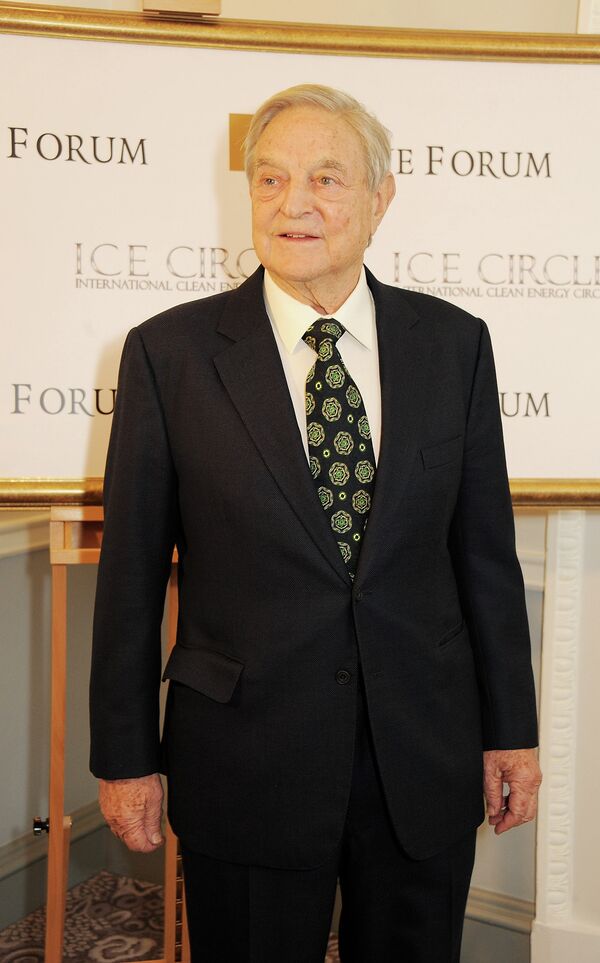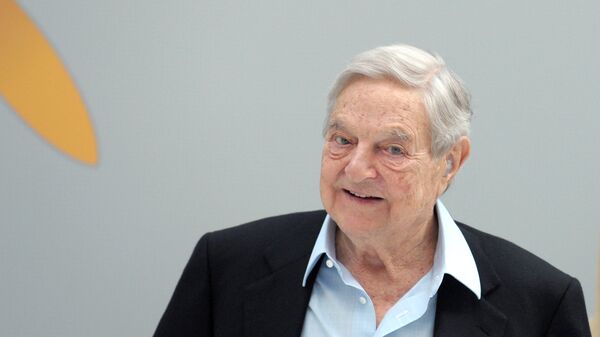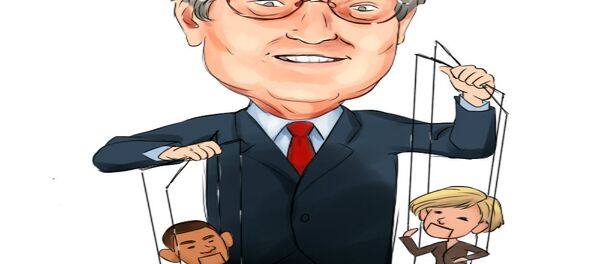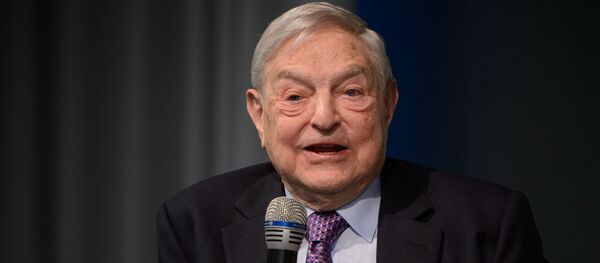In the last few decades Budapest-born American magnate George Soros has been busy with creating a vast network of NGOs and non-profit societies in the post-Soviet space and in Europe, American political analyst Phil Butler writes in his article for New Eastern Outlook.
"WikiLeaks told you the Panama Papers were provided by the United States government, George Soros' various NGOs, and a host of western journalists. Today the proof is irrefutable. A vast network has been established in the last few decades to not only control news, but to influence even the laws under which society operates," Butler notes.
"On April 3, the Panama Papers hit media outlets around the world, and the fallout was swift. A prime minister lost his job, and other global leaders are under mounting pressure to account for their actions. But the effects of the leaks are not evenly spread; the documents contained far more information about the offshore activities of individuals in the developing world than in the developed world," Strategic Forecasting Inc. (Stratfor) also known as a "shadow CIA" reported.
However, the influential intelligence firm somehow failed to mention that what was released by Western media outlets constitutes only the tip of the iceberg. The inconvenient truths about the offshore activities of senior government officials, billionaires and bankers in the developed world have been deliberately concealed.
"The filtering of this Mossack Fonseca information by the corporate media follows a direct western governmental agenda. There is no mention at all of use of Mossack Fonseca by massive western corporations or western billionaires — the main customers," Craig Murray, human rights activist, author and former British Ambassador to Uzbekistan, wrote on his blog on April 3.
Back in the 1990s, after the collapse of the USSR, George Soros became deeply involved in socio-engineering projects in the post-Soviet space. According to Butler, Latvia became a sort of test lab for Soros' experiments.
"Foundation DOTS, or the Soros Foundation Latvia, was established back in 1992, just after the fall of the Soviet Union… From 1990 to 2002 Soros endeavors engage in ever sphere of Latvian society from law and ethics, to the disabled and the arts. The small Baltic country becomes a sort of 'conversion' template, a kind of Soros new world order experiment," the US political analyst emphasizes.

But it was only the beginning. In 2005 Soros Foundation kicked off a program called "Wider Europe." The project was particularly aimed at Belarus, Ukraine, Moldova, and Georgia, which were targeted as "partners to the greater EU community." Soon after, the tentacles of the Soros-led organizations and their affiliates have spread all across Eastern and Central Europe and beyond.
Then George Soros began to make efforts to shape the EU policies. It was the American billionaire who strongly recommended that the EU should "rescue" Ukraine after the notorious coup of 2014 and provide "a new financial package of $50 billion or more," to the country torn by neo-fascist thugs and corrupt oligarchy.
And it is Soros who is now urging European governments to absorb between 300,000 and 500,000 asylum seekers per year, completely ignoring the fact that the EU is suffering from recession and social instability.
The American billionaire noted in his recent article for The New York Review of Books that it would cost the EU just €30 billion ($34 billion) a year to carry out this plan.
"Thirty billion euros might sound like an enormous sum, but it is not when viewed in proper perspective. First, we must recognize that a failure to provide the necessary funds would cost the EU even more," Soros stresses.
Furthermore, it is Soros and his associates who are spreading the false narrative of Russia's "neo-imperial" ambitions.
Of course, we should not demonize George Soros, who is in fact just a "court factor" of those who are even more powerful than he is.
The crux of the matter is that neither Soros, nor his patrons are interested in well-being of Europe, Butler notes.
"Soros and his comrades wherever they are, they are less interested in any new world, than with the fortification and then growth of the old one, the elitist one," the US analyst notes, adding that the Baltic States and other former Soviet republics have become the "ideological Lebensraum" for Soros and Washington's elites.





